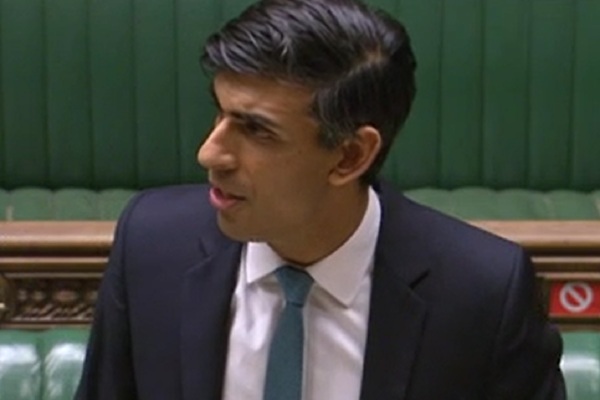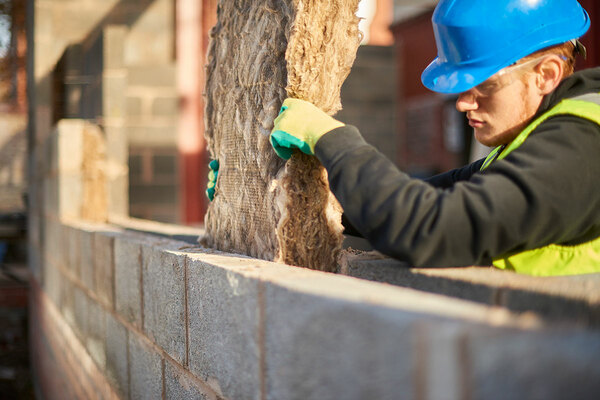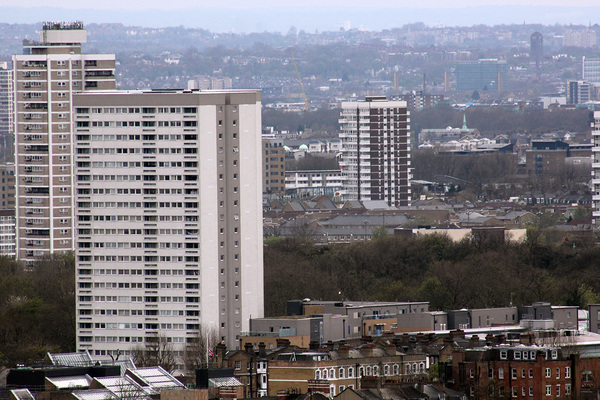You are viewing 1 of your 1 free articles
Spending Review 2021: what is the housing sector calling for?
At the end of this month, chancellor of the exchequer Rishi Sunak will unveil the results of a Spending Review alongside his autumn Budget. What would the sector like to see? James Wilmore reports
Building safety
The building safety crisis remains the sector’s biggest challenge as the spectre of Grenfell continues to loom. While the government has so far announced around £5bn to tackle the crisis, the sector is calling for more to be done.
The G15 is urging the government to allow social housing providers to access the Building Safety Fund regardless of tenure. It also wants VAT on remediation works to be removed to “maximise the value of resources being invested”.
And for leaseholders, it is calling for the government to fully fund remediation works that cannot be recovered via issuance or warranty.
The National Housing Federation (NHF) has called for support for shared ownership leaseholders, who currently fall outside the remit of the government’s fund. The group has also urged that not-for-profit registered providers, including any commercial entities they own, are made exempt from the proposed cladding tax on developers. It appears to have already won that battle.
The Chartered Institute of Housing (CIH) has called on ministers to review the Building Safety Fund to “reflect the true cost of the work required to make buildings safe” as it said many of the current issues are a “systemic failure of the previous building safety regulations”.
On the new Building Safety Bill, it said organisations should be able to access a fund to meet the requirements of the new legislation, as the costs are likely to be “significant”.
Decarbonisation
The cost of decarbonisation for the sector is still to become clear. Some estimates have put the cost of retrofitting at £100bn. The government has started allocating a small share of the promised £3.8bn Social Housing Decarbonisation Fund (SHDF), to be spread over the next decade.
But many in the sector want the money sooner.
The G15 is calling for the funds to be fully allocated over the next five years and for the money announced in the second wave last month to be increased. The Local Government Association and the Northern Housing Consortium (NHC) have both also recommended the £3.8bn funding be brought forward.
The G15 is urging ministers to help social landlords prepare for net zero by “urgently confirming what targets, definitions, and exemptions will be set”. It also wants the government to use the Spending Review to set out its future plans around the funding of decarbonisation.
The NHF and CIH both want the government to make a firm commitment that the full £3.8bn will be allocated, as per the Conservative Party’s 2019 manifesto.
The NHF wants housing associations to be able to bid directly for the current SHDF, as well as jointly with local authorities. In the first wave of the fund, housing associations were only able to bid jointly with councils.
Housing charity Shelter, in its submission, has urged the government to fund the pilot of 10,000 net-zero social homes to cut the cost of technology needed to meet the Future Homes Standard.
Affordable homes funding and development
The government must invest £12.8bn a year over the next 10 years in homes for social rent to “break the back” of the housing crisis, according to Shelter.
The charity also wants the government to announce the next 10 years of its Affordable Homes Programme (AHP) now, rather than waiting until 2025/6 to announce the next tranche of funding.
“This will provide long-term certainty to local authorities and housing associations, allowing them to deliver far more homes at a faster pace,” the charity said. “The government must also significantly increase the proportion of the AHP which is spent on genuinely affordable social rented housing.”
The Local Government Association wants measures to help councils secure affordable homes for “all those who need it”. This should include a “housing stimulus package to deliver 100,000 homes each year and reform of the Housing Revenue Account system”, it said in its submission.
The NHC called for the government to do more to promote brownfield development. “The chancellor should commit a further £500m of funding over the Spending Review period to establish new homes on brownfield sites,” it said. It recommends the money should be allocated directly to combined authorities, where they exist.
Homelessness, welfare and COVID-19 recovery
Despite the Spending Review coming after the end date of the £20 Universal Credit uplift, it did not stop groups calling for the payment to be kept.
The G15 said the uplift should be maintained and extended to “all legacy benefits”, while making sure Local Housing Allowance (LHA) rates rise to meet growing costs.
Shelter called for the government to halt the planned cancellation of the uplift. On LHA rates, it said the government must unfreeze and keep them in line with at least the 30th percentile and conduct an “urgent review”, to ensure they are adequate to keep families on low incomes in their homes.
It called for the benefit cap to be abolished. “The benefit cap has prevented tens of thousands of families from accessing both the £20 uplift to Universal Credit and the restored rate of LHA,” it said.
The charity said the government must make a dedicated COVID-arrears fund of £360m available to prevent homelessness. “This funding must be introduced immediately to ensure those at imminent risk of eviction and homelessness can access it straight away,” it said in its submission.
The G15 also asked for ministers to allow social housing providers to bid directly into the UK Shared Prosperity Fund to support residents into employment.
The NHF wants the government to reinstate the £1.6bn ring-fenced funding for housing-related support services, and use the opportunity of social care and NHS reform to “prioritise preventative services” and “enable housing providers to continue responding to coronavirus”.
Levelling up
With levelling up still apparently high on the government’s policy agenda, sector groups have tried to address the issue.
The NHF is calling for Homes England’s remit to be widened to include regeneration. As most current government funding focuses on additionality, the NHF said there is a “role for Homes England to deliver high-quality housing-led regeneration where it cannot be funded otherwise”. It added: “Higher flexibility on existing funding including allowing for replacement of homes is crucial to support the levelling-up agenda, and to help deliver quality affordable homes across the country.”
The G15 has reminded the government that levelling-up should also be applied to the capital. “London has been hardest hit of any region in the country by the pandemic, with higher job losses coupled with existing income inequality in London that is twice the level compared to the rest of the UK,” its submission said. “The capital also faces higher poverty and child poverty rates, alongside the highest proportion of Universal Credit recipients. To achieve a fair recovery, levelling-up will be as necessary within London as it is across the country.”
The NHC has said that local councils need a return to greater spending capacity to tackle levelling-up. “The Spending Review should set out a clear commitment to a real-terms increase in local government funding,” its submission said.
It also said that Homes England’s strategic objectives should be changed to do more to contribute to levelling-up and net zero.
“The opportunity…exists to refocus the agency’s significant resources on the current government’s priorities, ensuring that expert advice and support is available to those areas in need of levelling-up,” it said.
Sign up for our daily newsletter
Already have an account? Click here to manage your newsletters












